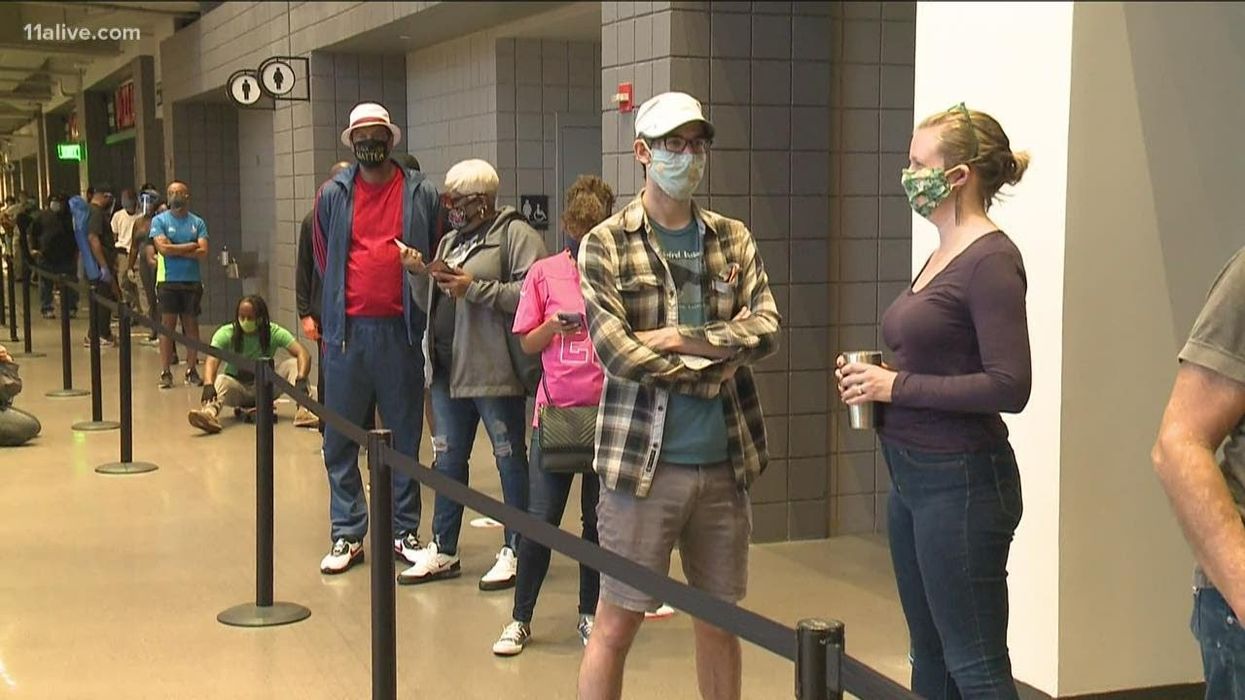With only 11 days before the 2020 presidential election, more than 2.3 million Georgians have voted. Even more plan to do so before the state's Oct. 30 early-voting deadline. And just as in the primaries earlier this year, Georgia voters experienced extremely long wait times at the polls. On the first day of early voting, some Georgians waited more than eight hours to vote. Voters should never have to take an entire day to participate in democracy.
In response to excessively long lines, Walter Jones, a representative from the Georgia secretary of state's office remarked, "What this means is people are really energized and engaged in this race, and we prepared for it. "
Jones failed to mention that Georgia's extreme wait times are disproportionately affecting Black and Latino voters, or that voter suppression strategies are also drivers of the state's long voting lines. While it's undeniable that states across the country are experiencing record voter turnout in this year's election, we shouldn't ignore the intentional actions taken to suppress the vote. This is a key reason why Black and Latino voters are still waiting in hours-long lines.
There are many reasons why voters may experience long lines. Polls may open late. There could be a surge in voter turnout. There may be COVID-19 safety measures. Nevertheless, voters of color have historically waited longer to vote than their white counterparts. A national analysis of cell phone data during the 2016 general election showed that voters in Black neighborhoods waited almost 30 percent longer than those in white neighborhoods. The same study showed that voters in neighborhoods of color were 74 percent more likely to face waits of more than 30 minutes.
Why are Black and Latino voters waiting longer? Sometimes, there's an intentional underinvestment of election resources in their neighborhoods. Disproportionate poll closures, fewer voting machines, and fewer poll workers all mean longer wait times for voters of color.
Since 2012, Georgia has closed 331 polling places, 82 of them in the Atlanta metropolitan area. This year, Georgia additionally rolled out new voting machines that went largely untested by the public until the state's 2020 primary elections. Technical issues contributed to the state's meltdown during the primary and extremely long lines for Georgians of color in June. Poll worker shortages due to the coronavirus pandemic also compounded voting location closures statewide.
Longer wait times for Black and Latino voters are frequently found in states with long histories of voter suppression. In 2019, a report found that Georgia improperly purged 198,351 voters from the voting rolls. This followed the purge of over 534,000 voters between 2016 and 2017.
It's critical that Black and Latino voters are able to vote in a free, fair and safe election this fall. Voting rights champions should advocate for equitable election resources for Black and Latino communities. Election officials should encourage voter resiliency during the 2020 election cycle, but also support the restoration of the Voting Rights Act. That will help block voter suppression before there are eight-hour lines.
Advocates can use resources developed by the Advancement Project's national office to help voters make a plan to vote this fall. Our democracy is counting on it.
Gilda Daniels is the litigation director for the Advancement Project National Office. Read more from The Fulcrum's Election Dissection blog or see our full list of contributors.



















